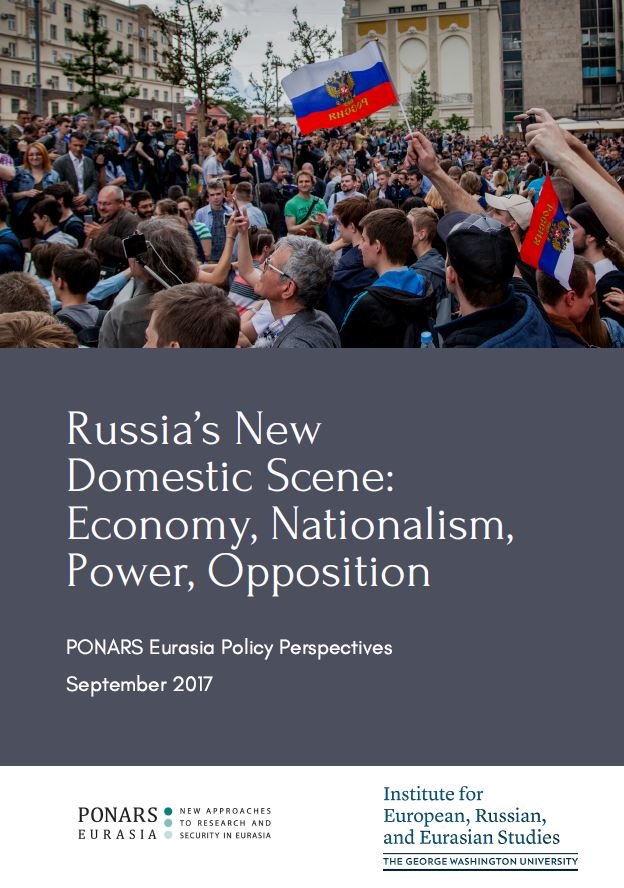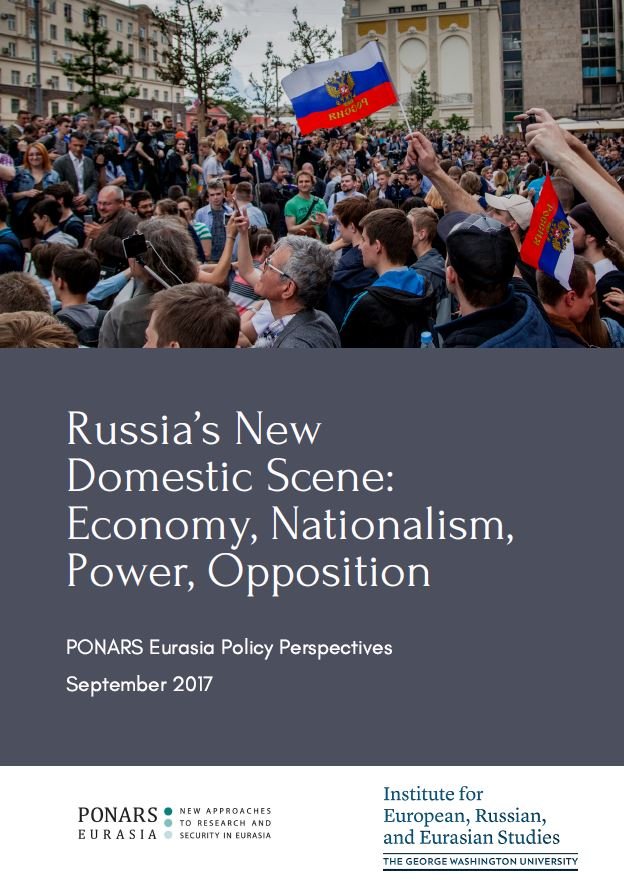Since the so-called conservative turn of 2012 and the Ukrainian crisis, the Russian regime has been facing new challenges, among them the economic slowdown and what for several years appeared to be a decline in popular mobilization. As such, the Kremlin has sought to avoid domestically controversial issues and strategies as it prepared for what it hoped would be a low-key and uneventful 2016-18 cycle of parliamentary and presidential elections.
In this volume, PONARS Eurasia experts address “Putinism” as a system, looking at its central and regional mechanisms, changes in its strategies toward the opposition, and its flexible media coverage. The authors also revisit Russia’s economic model, reactions to the crisis, and efforts (or the lack thereof) to address endemic high-level corruption.
Interactions between the regime and the population on issues related to nationalism and patriotism are explored in order to better comprehend patterns of mobilization or demobilization of public opinion on topics identified as relevant to national identity and Soviet memory.
Last but not least, we look at a range of perspectives on the notion of diversity and the identification of foes and partners. Russia remains a very diverse country in terms of its regional components, and local contexts matter, even as citizens share similar perspectives on Russia’s place in the international order.
View more: E-Books/Policy Perspectives












